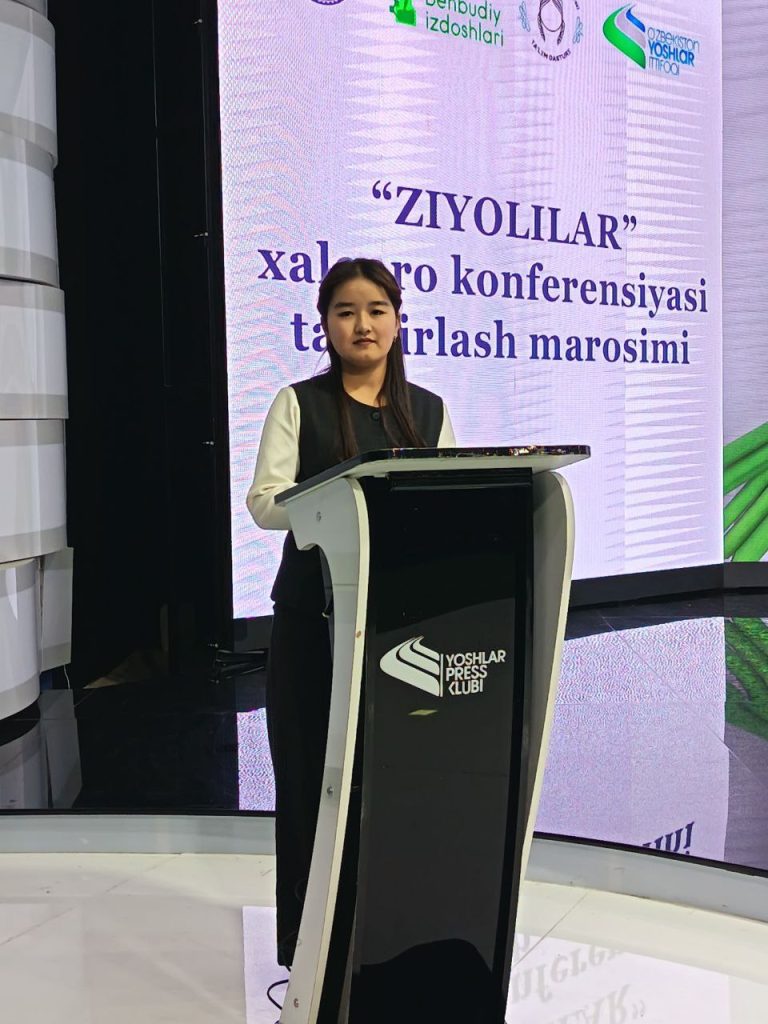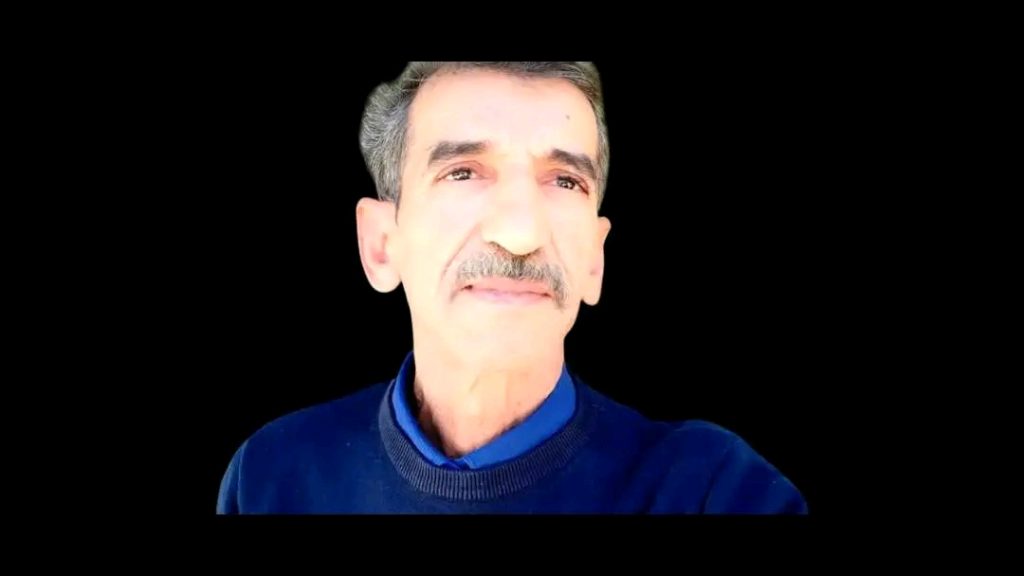
Category Archives: CHAOS
Poetry from Duane Vorhees
GOSPEL OF SPRING
bears unhibernate
–christless– corpses of forest
resurrect anew
ETERNITY TREES
Enlightened
under a tree
he smiles his frown
at the world that is
as it dissipates
Tortured
on his tree
he frowns his smile
for a world to come
as it resurrects
FARM GALAXY FORMATION
Snowflakes star my glass
and constellation the fields
The moon is broken
MASA’S MASSES
This is how we all exist:
bloody fist or bleeding wrist.
If not: armed with David’s sling,
then: arms enslaved in slings.
Hawk or auk. Ram or lamb;
Pawns upon earth
or — its king
:this is how we all exist
CLIPED, BUT NOT CLIPPED AGAIN
The rose that winds:
Life is like four aces in a gambler’s hand,
the last oasis in a scrambled land.
Any dawn transforms a man (Amen)
from prime to corpse to youth again.
And all the women were virgins once
despite the destinies of their cunts.
We keep safecrackers in the keep
for the safekeeping of the crack ones (us),
while crack sellers keep safe
in the cracks of our cellars
because Judas hanged and gutted Jesus….
The goose is in the sage / the sage is in the goose.
But the hand that rocks the cradle cradles the rock:
Judas, hanged and gutted — Jesus!
The sly quicksilver alters to quicksand
And then there are no aces and a scrambled hand,
a lost oasis in a gambler’s land,
and the winds that rose.
CLEAVED AND HEWN, BOLTED, RAVELED, TRIMMED AND
WEATHERED, DUSTED, AND CLEAVED YET AGAIN
…
Essay from Halilova Ruxshona Abdufattohovna

A SCHOLAR WHO LEFT A MARK IN MY FIELD (AL-FARABI)
Abstract: This article highlights the scientific legacy of Abu Nasr al-Farabi, a great thinker of the Eastern Renaissance, and his influence on the development of modern fields. The scholar’s ideas on logic, philosophy, education, and society are analyzed, with special emphasis on his role in the processes of speech, thinking, and scientific analysis. The article demonstrates the relevance of al-Farabi’s views to today’s scientific and practical activities and emphasizes that his legacy is an important source in the formation and development of my field.
Key words: Scholar, scientific heritage, thought, education, speech culture, Eastern Renaissance, logic.
The development of every field is closely connected with the research, scientific ideas, and heritage of great scholars who lived and created in their time. One of the scholars who had the greatest influence on my field is Abu Nasr al-Farabi, who was honored with the high title “Muallim as-Sani” — the “Second Teacher” of the East. Al-Farabi’s ideas about human thinking, science, and the development of society have remained relevant not only in his own time but also today.
In 941, the scholar began living in poverty in Damascus. Despite this, he continued to pursue knowledge and conducted research in philosophy and other sciences. He gained the respect and patronage of the ruler of Aleppo, Sayf al-Dawla Hamdanid (reigned 943–967), who was known as a supporter of scholars. Although the ruler invited al-Farabi to his palace, he preferred to live a free and independent life. Nevertheless, his life in Aleppo was productive, and he wrote many of his works there. Between 949–950, al-Farabi lived in Egypt and later returned to Damascus, where he spent the last years of his life. He was buried in the Bab al-Saghir cemetery in Damascus. According to available sources, al-Farabi wrote more than 160 works, although many of them have not survived. Even the existing treatises prove his greatness as a scholar.
Al-Farabi created during the early Middle Ages, in the period of the Eastern Renaissance, which was characterized by the growth of productive forces, the development of crafts, irrigation systems, the construction of new cities, and the flourishing of cultural and spiritual life. Trade expanded in the 9th–10th centuries, especially with India, China, Byzantium, and African countries. Although the period was not free from conflicts, al-Farabi’s philosophical views reflected both the achievements and the contradictions of his time.
One of his greatest contributions to science was interpreting and enriching the works of Greek philosophers with new ideas. Al-Farabi wrote commentaries on Aristotle and was known as a promoter and continuer of his natural philosophical ideas. He also commented on the works of Plato, Alexander of Aphrodisias, Euclid, Ptolemy, and Porphyry. Moreover, he was familiar with the works of Hippocrates, Epicurus, Anaxagoras, Diogenes, Chrysippus, Aristippus, Socrates, and Zeno, and had a deep understanding of Epicurean, Stoic, Pythagorean, and Cynic schools.
Al-Farabi developed a comprehensive classification of sciences, considered perfect in the Middle Ages. In his treatises “On the Origin of the Sciences” and “On the Classification of the Sciences,” he described nearly thirty fields of knowledge known in his time. One of his important ideas is his doctrine of the universal intellect and universal soul, which he considered eternal. According to him, the human soul and intellect do not disappear after death but unite with the universal intellect and soul. In this teaching, there are profound ideas about the eternity of the world, the immortality of human essence, and the continuity of human knowledge and spiritual culture. Al-Farabi also substantiated the rational method of knowledge and emphasized observation, debate, sensory perception, and scientific reasoning.
One of the qualities that made al-Farabi great was his boundless love for knowledge and his belief that knowledge is the main criterion of life. He created major works in logic, philosophy, music, mathematics, linguistics, and political science. His logical ideas later had a strong influence on European science and helped deepen the understanding of Aristotle’s works.
Why do we need al-Farabi?
First, because he established the fundamental principles of science in fields such as logic, philosophy, politics, music, pedagogy, and psychology. Much of modern scientific thinking is based on his ideas.
Second, because he presented ideas that lead humans toward perfection. His work “The Virtuous City” discusses the ideal society and the perfect human being, and its ideas about education, morality, and governance remain important today.
Third, because he unified knowledge by emphasizing the interconnection of all sciences, which forms the basis of modern interdisciplinary studies.
Fourth, because he teaches us how to think — to analyze logically, rely on evidence, and study knowledge systematically, which is essential for success in any field.
Fifth, because his legacy still addresses modern problems such as justice, governance, morality, and education, proving that his ideas remain timeless.
In my field — language, literature, and scientific analysis — al-Farabi’s greatest contribution is his scientific explanation of the relationship between thought and speech. Through logical categories such as concept, judgment, and conclusion, he developed a methodology for correctly understanding and interpreting texts. Today, concepts such as text analysis, argumentation, and logical speech are rooted in al-Farabi’s works. Furthermore, his ideas about society in “The Virtuous City” correspond to many aspects of modern democratic principles, and his views on education continue to influence modern pedagogy.
The scholar’s legacy strengthens my love for knowledge, deepens my thinking, and reminds me that every word and every idea must have a logical foundation. Al-Farabi teaches the eternity of knowledge and the limitless nature of human thought. Therefore, I consider it an honor to follow his path in my field and draw inspiration from his scientific heritage.
References:
1.National Encyclopedia of Uzbekistan, Vol. 1, “Farabi,” Tashkent, 2000, p. 412.
2.Jumaboyev, Y. From the History of the Development of Philosophical and Ethical Thought in Uzbekistan, Tashkent, 1997, p. 187.
3.Al-Farabi, The Virtuous City, Tashkent: Yangi Asr Avlodi, 2010, p. 164.
4.Yuldashev, M. Al-Farabi’s Philosophy and the Eastern Renaissance, Tashkent, 2005, p.
214.
Halilova Ruxshona Abdufattohovna was born on October 16, 2007, in Sariosiyo district of Surkhandarya region. She is currently a first-year student at the Denov Institute of Entrepreneurship and Pedagogy, Faculty of Philology, majoring in Uzbek Language and Literature. She holds a National Certificate in her native language. In addition, she has obtained more than 100 international and local certificates. She is a member of the Argentine “Science and Literature Writers” Association and has a membership certificate. Her articles are indexed on Google, and her creative works have been included in many anthologies. She has also participated in several prestigious competitions.
Essay from G`afforova Hadichaxon Abduhamid qizi

GLOBAL AIR POLLUTION AND ITS IMPACTS ON HUMAN LIFE
Student of English philology faculty of Uzbekistan State World Language University
E-mail: gafforovaxadicha5@gmail.com
Annotation
One of the most pressing issues worldwide is severe air pollution. This article discusses the significant changes occurring in the global climate and examines how such environmental problems negatively affect human life. Furthermore, several factors contributing to the intensification of air pollution are analyzed, and potential solutions to mitigate its adverse effects are proposed.
Keywords:
Pollution, transportation, cosmic dust, Tashkent
Introduction:
The term atmosphere is derived from Greek, where atm means “vapor” and sphaira means “envelope.” The atmosphere is the Earth’s primary protective layer, shielding humanity from harmful cosmic particles and radiation. Without this protective layer, the Earth would be irreversibly damaged. Consequently, air pollution, as one of the most critical global issues, demands collective attention and action.
Air pollution is among the most urgent problems worldwide, and it arises from multiple sources. First, there is the increasing dependence on personal transportation. For instance, in most developed countries, virtually every household owns at least one personal vehicle. As of October 2025, the world population exceeded 8.2 billion, currently standing at approximately 8,218,034,614. Nearly half of this population relies on automobiles, contributing significantly to atmospheric contamination.
The heavy traffic congestion commonly observed in urban areas exacerbates this issue, as idling engines emit harmful gases that deteriorate air quality.
Second, the expansion of industrial activities, particularly the establishment of factories and plants, contributes substantially to air pollution. Industries employ various materials that, when processed through melting, refining, or hardening, release hazardous gases into the atmosphere. For example, emissions from large industrial complexes such as the Almalyk Mining and Metallurgical Combine (OKMK) release sulfur dioxide(SO₂)and other heavy metals, seriously impairing local air quality.
Another critical factor in air pollution is human negligence. Despite the global significance of this ecological issue, the proliferation of factories, excessive use of vehicles, and improper waste management persist largely due to public indifference. Many individuals perceive environmental preservation as unrelated to their personal actions, often thinking, “What difference can one person make?” Such indifference accelerates environmental degradation. Even simple acts, like discarding plastic bottles or papers on the street, contribute to pollution, as these materials take years to decompose. Similarly, routine vehicle inspections to reduce emissions are frequently neglected. It is essential to recognize that small, conscientious actions—reducing waste, planting trees, and maintaining cleanliness—can collectively generate substantial positive impacts.
Proposed Solutions:
Several strategies can mitigate the problem of air pollution. Firstly, promoting the rational use of transportation is crucial. Excessive reliance on personal vehicles emits harmful gases such as carbon dioxide and methane, reducing the oxygen content in the air and posing health risks. Encouraging public transportation, including buses, subways, and trams, along with the expansion of cycling lanes and pedestrian pathways, can significantly reduce vehicular emissions. Additionally, the adoption of electric and hybrid vehicles offers a practical solution to lower atmospheric contamination.
Secondly, enforcing strict environmental regulations in industrial sectors is vital. While industrial growth is critical for economic development, emissions from factories severely harm the environment. Implementing advanced filtration systems, purification devices, and waste reduction technologies in factories can prevent the rapid dispersion of harmful substances. Moreover, industries can utilize renewable energy sources, such as solar, wind, or bioenergy, to minimize their environmental footprint. Companies should also actively participate in ecological initiatives, including afforestation and the creation of greenspaces, to compensate for environmental damage.
Thirdly, raising public environmental awareness is essential. People often consider environmental protection the sole responsibility of governments or ecological organizations, overlooking their personal duty to safeguard nature. Therefore, integrating environmental education into school and university curricula, promoting conservation through media and social networks, and organizing community activities such as tree planting and waste segregation can foster ecological responsibility. Trees, as natural “living filters,”absorb carbon dioxide and release oxygen, improving air quality while providing aesthetic and psychological benefits. Establishing urban green spaces, parks, and recreational areas further enhances air circulation and environmental well-being. Encouraging each individual to plant at least one tree per year can create a sustainable ecological foundation for future generations.
Conclusion:
Air pollution is not merely an ecological concern; it is closely linked to human health, societal well-being, and the fate of future generations. Polluted air compromises the quality of oxygen we breathe, increasing the risk of cardiovascular diseases, respiratory infections, allergies, and other health problems. Scientific evidence indicates that the primary cause of global air pollution is human activity, exacerbated by ecological indifference.
Therefore, every individual’s participation is crucial in improving air quality. Society must collectively promote responsible transportation habits, enforce strict industrial environmental standards, and cultivate environmental awareness through education and community engagement. Simple measures—such as tree planting, maintaining cleanliness, and segregating waste—can yield significant results.
Nature is not a temporary dwelling; it is our only home, the foundation of our existence and life. We derive air, water, food, and peace from it. Hence, protecting, preserving, and respecting nature is our duty. By treating the environment with care today, we ensure that it will continue to sustain and bless us in the future. Conversely, neglect and indifference threaten not only our lives but also the well-being of future generations.
G’afforova Hadichaxon was born on November 1, 2007, in Beshariq district, Fergana region. She is currently a first-year student at the Uzbekistan State University of World Languages.
Poetry from Alexa Grospe
Clean
Am I still clean?
I take dust
off of my hair,
pluck the hair from my limbs,
wash the limbs
under ice cold water to tighten my pores-
Am I
messy?
I am tuned to my
alarm clock in the morning,
drawn to the smell of
glass cleaner I cleared my mirror with-
Am I not
pristine?
I scrub my face
the moment I wake,
throw my dirty shirts across the room,
empty the coffee stains off of
every white mug I own-
Am I too
addicted?
I assure myself
that I am spotless
and bright
when in reality
I own bags under my eyes
and hanging from my hands,
Rocks on my back
and splinters in my shoes-
Am I not immaculate enough
for your praise?
I wonder
as I wake and sleep in drowning circles-
why are my bones not
polished enough inside-
You won’t have to see them,
but you want them to be
visible under my skin-
Why
Why am I blemished
and bruised-
Am I still acceptable
for your love?
Poetry from Jamal Garougar
Poetry from Mahbub Alam

Sleepiness
Light cascades like a shower over the body of dawn.
Yet I am still, deep in sleep,
Something tightens inside my chest,
my breath pauses—
as if I am slipping
into an even deeper sleep.
In the depth of sleep,
the morning air outside spreads its tenderness.
Behind closed doors,
like a child, I swim through dreams.
How far have I traveled,
how much time have I crossed?
There is no measure for it.
Never did I imagine
sleep could have such scales.
Sleep is dear to me.
Like a shade of peace,
something smiles within.
With a cheerful heart,
I play in the field
all afternoon long.
Before I even notice,
the games have stopped.
Night falls,
darkness thickens.
Crossing the dark,
when did dawn arrive again?
How many birds sing in the morning air,
how much light falls softly—
there is no keeping count.
Inside this closed room,
only the hours of sleep remain.
Morning air walks a long road outside,
while I, within sleep,
cross over to that distant land of Kusumpur.
Before dreams fully break,
the body grows strangely heavy.
Someone once said,
Waking early fills the heart with freshness,
sets life in motion.
So I only wonder—
are we all,
in some way,
such lovers of sleep?
Md. Mahbubul Alam is from Bangladesh. His writer name is Mahbub John in Bangladesh. He is a Senior Teacher (English) of Harimohan Government High School, Chapainawabganj, Bangladesh. Chapainawabganj is a district town of Bangladesh. He is an MA in English Literature from Rajshahi College under National University. He has published three books of poems in Bangla. He writes mainly poems but other branches of literature such as prose, article, essay etc. also have been published in national and local newspapers, magazines, little magazines. He has achieved three times the Best Teacher Certificate and Crest in National Education Week in the District Wise Competition in Chapainawabganj District. He has gained many literary awards from home and abroad. His English writings have been published in Synchronized Chaos for seven years.
Once when he was in grade ten in 1990, his Bangla letter was selected as the best one from Deutsche Welle, Germany Radio that broadcast Bangla news for the Banglalee people. And he was given 50 Dutch Mark as his award. They would ask letters from the listeners to the news in Bangla and select one letter for the best one in every month.
From 17 to 30 September, in 2018 he received a higher training in teaching English language in Kasetsart University of Thailand for secondary level students through a government order from education ministry.
On 06 November 2015 he achieved Amjad Ali Mondal Medal for his contribution in education field by a development organization in the conference and felicitation function for the honorable personalities at Rajshahi College Auditorium.
On 30 December 2017 from West Bengal in India he was declared a ‘Literary Charioteer’ in Bangobandhu Literary and World Bango Conference and they awarded him with a Gold Medal in their International Literary Conference and Prize Giving Ceremony.
In 2018, he achieved Prodipto Lirerary Award in Prodipto Literary Conference at Kesorhat, Rajshahi for poems in Bangla literature. He received honorary crest from the administration of Chapainawabganj District Literary Conference and Cultural Function in 2021 and 2022 consecutively.
His poems have been published in many international online magazines such as Juntos Por las L Raven Cage Zine, and Area Felix. His poems have been translated and published in Argentine and Serbian, and he participated in many international online cultural meetings.

